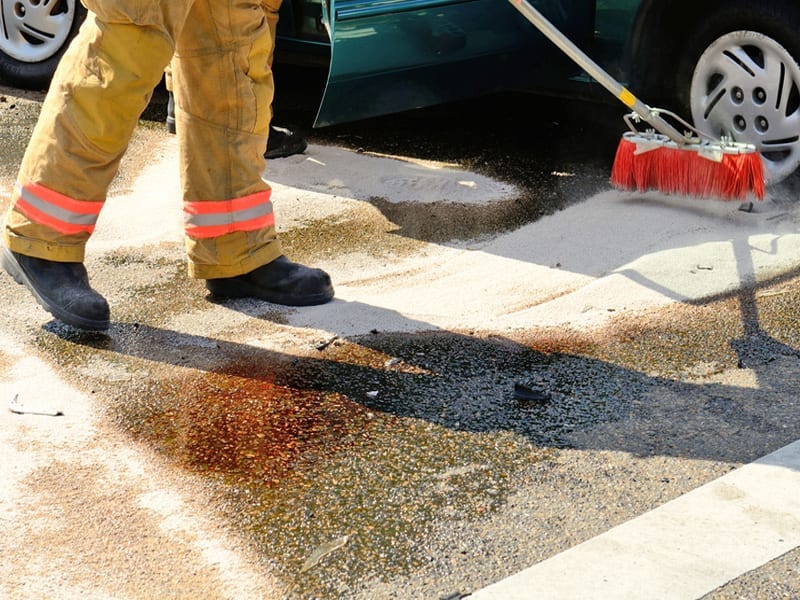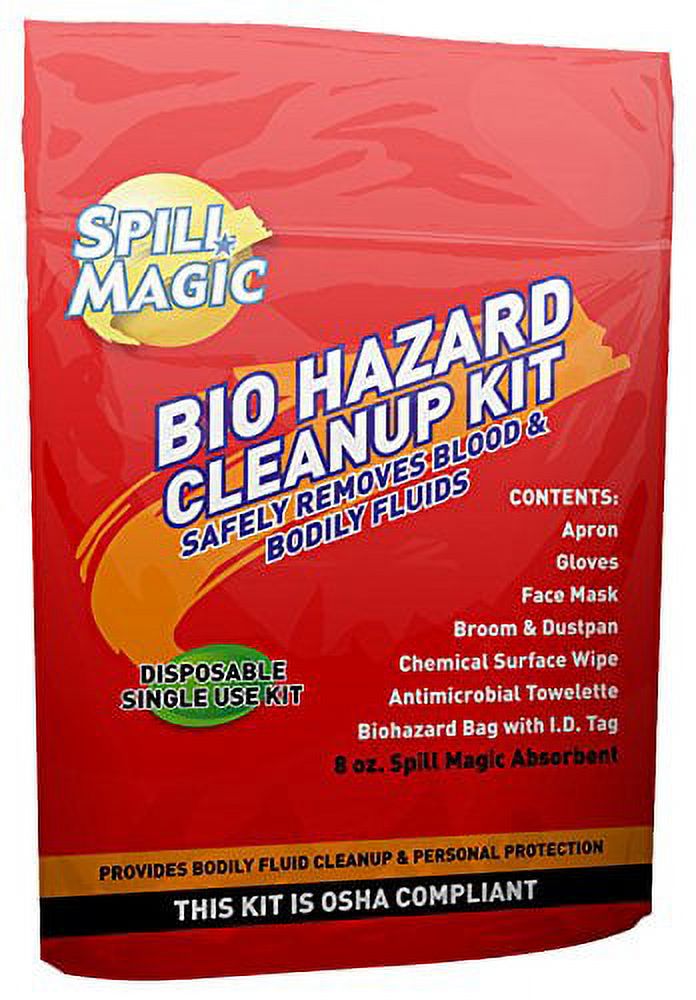Clandestine Lab Cleanup: Comprehensive Purification for Hazardous Sites
Specialist Biohazard Cleanup for Crime Scenes, Injury Incidents, and Contaminated Spaces
In the world of expert biohazard cleaning, careful attention to detail and adherence to security procedures are critical. When faced with the after-effects of a criminal activity scene, injury incident, or any infected room, the value of proper cleaning can not be underrated. The risks and intricacies related to biohazards call for customized understanding and competence to make certain efficient remediation. As we look into the ins and outs of biohazard cleanup for these delicate settings, a deeper understanding of the challenges and crucial treatments involved will certainly arise, clarifying the crucial role of professional cleanup services in restoring security and comfort.

Importance of Biohazard Cleanup
Biohazard clean-up following criminal activity scenes and trauma cases is important for ensuring the security of people and the environment. When these events happen, they often leave a variety of biohazards such as blood, bodily fluids, and various other possibly infectious materials. These compounds can nurture hazardous virus like viruses and germs, positioning major wellness threats otherwise properly cleansed and sanitized.
Expert biohazard clean-up services are trained to manage these unsafe products securely and properly. They have the necessary tools, such as personal safety equipment and specialized cleansing representatives, to completely sanitize the impacted areas. By handing over the cleaning to qualified experts, individuals can prevent exposure to damaging pathogens and stop the spread of transmittable conditions.
In addition, correct biohazard cleaning is vital for securing the environment. Improper disposal of biohazardous products can pollute dirt, water sources, and air, presenting a danger to wild animals and the ecological community. By adhering to strict cleaning methods, specialists can ensure that biohazards are securely gotten rid of and disposed of according to policies, lessening the risk of ecological contamination.
Kinds Of Biohazards Encountered
Different hazardous materials typically encountered in crime scenes and injury events present significant wellness dangers otherwise managed effectively. Blood and physical fluids are amongst the most usual biohazards located in these scenarios. These fluids can lug pathogens such as HIV, liver disease B and C, and various other unsafe bacteria. In addition, tissues, body organs, and body components can likewise pose severe health dangers because of prospective contamination.
An additional sort of biohazard commonly experienced is sharp things like needles, broken glass, and other items that can trigger injuries and send infections. Chemical dangers are likewise a concern, as criminal offense scenes may contain materials like tear gas, pepper spray, or medication production products that call for specific handling and disposal treatments to stop further harm.
Moreover, mold and mildew and microorganisms growth can occur in areas where decay or prolonged direct exposure to dampness has actually taken place. These microbes can release toxic substances and irritants right into the air, presenting respiratory system risks to those revealed. Generally, biohazard clean-up experts need to be well-equipped and skilled to efficiently handle these numerous kinds of hazardous products more to make certain the safety and security of themselves and others.
Devices and Safety Gear
When attending to the critical task of managing biohazards run into in criminal offense scenes and injury events, the use of correct equipment and safety equipment is paramount to guaranteeing the security of people entailed in the clean-up procedure. Specialized cleansing tools like biohazard sharps, anti-bacterials, and bags containers are essential for the safe collection and disposal of infected products. Making sure that all devices is properly kept, on a regular basis checked, and made use of according to security standards is important in reducing the threat of direct exposure to biohazards during cleaning procedures.
Clean-up Process and Methods
Thorough and effective cleanup of biohazardous products from criminal offense scenes and trauma cases needs thorough interest to detail and adherence to strict security protocols. The clean-up procedure commonly entails several vital actions.
Adhering to the removal of biohazardous products, the afflicted location undergoes a comprehensive cleansing and sanitation procedure. This action entails the usage of specialized cleaning up agents and crime scene cleanup pictures tools to make certain that all traces of contamination are removed. After cleansing, the location goes through rigorous screening to verify that it is risk-free and cost-free of any kind of staying biohazards.

Purification and Disposal Procedures
To guarantee extensive decontamination and proper disposal of biohazardous products, adhering to the thorough cleaning procedure, particular procedures must be diligently adhered to with rigorous adherence to security protocols. Decontamination entails the removal or neutralization of impurities to lessen the danger of exposure and spread of unsafe compounds. This process commonly includes cleansing, decontaminating, and sterilizing the affected area using customized devices and EPA-approved chemicals.
As soon as decontamination is finished, proper disposal of biohazardous materials is crucial to avoid further contamination or injury. Biohazardous waste, such as bodily fluids or blood-soaked products, should be meticulously collected, packaged, and identified according to governing guidelines. ATP testing. These products are then delivered to licensed facilities for disposal with ideal channels, guaranteeing compliance with local, state, and government guidelines

Final Thought
Finally, professional biohazard cleaning is critical for ensuring the reliable and risk-free removal of unsafe products from criminal activity scenes, injury occurrences, and polluted spaces. By making use of specific equipment, protective equipment, and complying with proper cleaning procedures and techniques, biohazard cleaning groups can effectively get rid of and decontaminate of biohazards, reducing the risk of direct exposure and harm to people and the atmosphere.
As we dive into the complexities of biohazard cleanup for these sensitive environments, a much deeper understanding of the obstacles and vital treatments involved will certainly arise, dropping light on the essential role of professional cleanup services in restoring security and tranquility of mind.
Professional biohazard cleaning services are trained to take care of these dangerous products safely and effectively. By adhering to strict clean-up methods, professionals can make sure that biohazards are safely gotten rid of and disposed of in conformity with guidelines, reducing the danger of environmental contamination.
In general, biohazard cleaning professionals should be skilled and well-equipped to efficiently manage these numerous kinds of dangerous materials to make sure the safety and security of themselves and others.
When dealing with the essential task of handling biohazards come across in crime visit site scenes and trauma events, the usage of appropriate devices and safety equipment is paramount to ensuring the safety of individuals involved in the cleanup process.